The 7 Habits of Highly Effective People by Stephen Covey
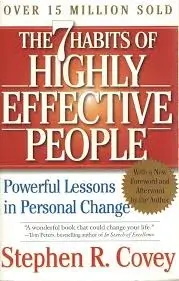
RATING: Life-Changing—Must Read
Stickiness Factor: 9/10
The 7 Habits of Highly Effective People Summary Overview: You must operate from a set of fundamental principles and values that guide your life and decisions. And you need a Mission Statement so you never forget.
Join the Always Do Crew for Weekly Book Summaries and Insights
Prefer to Watch? Here’s The 7 Habits of Highly Effective People In-Depth Video Summary:
7 Habits of Highly Effective People Summary in 10 Words
Improve yourself. Connect with others. Always win-win. People first.
High 5: Main Ideas and Key Points
- Principle-Centered Living: Without principles to guide your life, you will be pulled in all different directions to places that appeal to personality and not character. Without solid principles, and a map of the world based on those principles to guide your life, you will chase fame, money, pleasure, ease, comfort, distraction, and all manner of things that will, ultimately, leave you lost, stuck, and confused. (Trust me, I know.)
- You must operate from a set of fundamental principles and values that guide your life and decisions. And you need a Mission Statement so you never forget.
- Understand You: First and foremost, you need to understand yourself. And the most effective way to do that is to take 100% responsibility for everything in your life. You need to focus on the things that you can control, then go to work on them. Stop reacting and start acting.
- Most people don’t get to where they want to go because they don’t know where they want to go. Figure out, clearly, where you want to go, who you want to be, and what you want your life to be.
- Stop Complaining: So many people spend a majority of their time putting out life’s fires, working on unimportant things, and then complaining about not having enough time for what’s important. Don’t be one of those people.
- If you feel you “don’t have enough time,” it’s because you don’t know how to prioritize your priorities—your most important tasks and activities—and you haven’t accepted the fact that you can do anything you want in life but not everything.
- And most importantly, stop allowing distractions into your life.
- Stay Sharp: Life is all about continuous growth and learning.
- The advice is this: Focus on strengthening and improving the fundamentals. Blow through the fluff, see the forest for the trees, prioritize what’s core to your growth and do it.
- Love without Conditions: People Come First. Always.
“When we truly love others without condition, without strings, we help them feel secure and safe and validated and affirmed in their essential worth, identity, and integrity. Their natural growth process is encouraged. We make it easier for them to live the laws of life—cooperation, contribution, self-discipline, integrity—and to discover and live true to the highest and best within them. We give them the freedom to act on their own inner imperatives rather than react to our conditions and limitations. This does not mean we become permissive or soft. That itself is a massive withdrawal. We counsel, we plead, we set limits and consequences. But we love, regardless.”
7 Habits of Highly Effective People Summary in 4 Sentences
- Stephen Covey takes you on an in-depth journey into the fundamentals of what it means to live with Character today.
- It’s a practical journey where you work on the lens through which you view the world, focus on how the “correct” lens can guide you to the life you want, and how to integrate your new lens into your life, reality, and the world at large.
- 7 Habits is about getting you to focus on what is important in your life—values, principles, mission, roles, relationships, leadership—through specific habits (although, the “habits” are not so much habits in the modern sense we think of them today, but more so as guides to live a well-rounded and meaningful life (RE: Morning Routine for Life and a Nighttime Routine).
- The book is broken down into seven core habits that build upon each other, and Covey outlines approaching self-improvement from four main areas: physical, emotional, mental, and spiritual.
7 Habits of Highly Effective People Summary Top 3 Quotes
- “But until a person can say deeply and honestly, “I am what I am today because of the choices I made yesterday,” that person cannot say, “I choose otherwise.”
- “You can’t talk your way out of problems you behave yourself into.”
- “We see the world, not as it is, but as we are──or, as we are conditioned to see it.”
2 Ways 7 Habits of Highly Effective People Will Change You
- You will start to guide your decisions and life through a lens of fundamental principles and overarching values. You’ll build character first.
- You’ll learn to prioritize your time and your life.
1 Thing To Implement After Reading 7 Habits of Highly Effective People
- Make a “Values List” and Mission Statement, immediately.
- The “Always Do” Motto: “Integrity includes but goes beyond honesty. Honesty is telling the truth, in other words, conforming our words to reality. Integrity is conforming reality to our words—in other words, keeping promises and fulfilling expectations. This requires an integrated character, a Oneness, primarily with self but also with life. Treat everyone by the same set of principles.”
The Rating Explained
- 7 Habits of Highly Effective People is a rating of Life-Changing: Must Read, not because it is the best self-improvement book ever written, but because it introduces one of the most fundamental elements missing today: principles. So many people (mainly young people) are feeling lost, stuck, and unable to focus because they lack a principle-based foundation. Maybe you’re one of those people who are struggling. You’ve outsourced your agency—to choose who you are—to external sources, and you’ve lost trust in yourself. Perhaps you’re without direction in life because you were never taught to listen to yourself or how to build your life on principles and values. Instead, you’re being pulled by your whims toward influencers, search engines, and social media to avoid sitting with your own thoughts. It appears our maps of the world are skewed and only getting worse. We all need a map of the world that leads us toward what is good, and true, and right, and this book just might hold the key.
- Books like this are different. The modern Ra-Ra self-help nonsense that focuses on superfluous things like happiness, money, and even the neuroscience behind why we do what we do, don’t help unless we first focus on building our identity on principles. 7 Habits of Highly Effective People changes you, if you do what the book tells you to do.
- A Note on My Rating: I have to admit, this book was the first book I ever read when I started my journey out of the Darkness, so clearly that influenced my decision. Still, I feel this is a life-changing book. I’m not just throwing around the score of Life-Changing: Must Read all willy-nilly for any book. Promise.
- The Stickiness Factor is a 9/10: If you actually do the activities in this book, the lessons will stick with you long after you’ve finished the final page.
Who Should Read It?
- Everyone. Seriously. I believe this is an important book today. If you are young and you feel lost, confused, and in search of your “passion,” read this book—you’ll see that the answer to the question, “What should I do with my life?” starts with building your identity on principles.

7 Habits of Highly Effective People Summary, Review and Notes
My summaries are organized in a way that tells the book’s story through a thread of essential lessons and ideas—supported by life-changing quotes—not by chapter. This benefits understanding and recall. All quotes are from the author unless specified otherwise (I’ve added emphasis for effect). My transformative summaries are intended as companions to the book and do not substitute reading the original work.
“I know of no more encouraging fact than the unquestionable ability of man to elevate his life by conscious endeavor.“
—HENRY DAVID THOREAU
Be a Character: Principle-Centered Living
Personality vs Character
- Personality Traits: These are external traits—a person’s attitude, behavior, skills, and techniques.
- Positive Thinking: “Whatever the mind of man can conceive and believe it can achieve.”
- Attitude: “Your attitude determines your altitude.”
- “Power Looks” or “Power Stance”
- Smiling: “Smiling wins more friends than frowning.”
- Communication Tricks
- Quick-Fix Techniques and Strategies
- These are only band-aid, short-term solutions, and following these, or trying to “improve” them, leads to more problems and misery.
- Public-image techniques may glitter, but sustainable effectiveness rests on character.
- The problem today is that so many people are trying to change themselves by focusing on their behavior—working harder, being more focused, their attitude, being happier, smiling more—but they are focused on the wrong traits.
“Today we come across an individual who behaves like an automaton, who does not know or understand himself, and the only person that he knows is the person that he is supposed to be, whose meaningless chatter has replaced communicative speech, whose synthetic smile has replaced genuine laughter, and whose sense of dull despair has taken the place of genuine pain. Two statements may be said concerning this individual. One is that he suffers from defects of spontaneity and individuality which may seem to be incurable. At the same time it may be said of him he does not differ essentially from the millions of the rest of us who walk upon this earth.”
—ERIICH FROMM, “Individual and Social Origins of Neurosis,” 1944
- Character Ethics: A person’s character is built on principles that govern the world. A person with Character Ethics integrates the principles into their life first. They are deep-rooted ethical qualities:
- Integrity
- Humility
- Fidelity
- Temperance
- Courage
- Justice
- Patience
- Industry
- Simplicity
- Modesty
- The Golden Rule
“The Character Ethic is based on the fundamental idea that there are principles that govern human effectiveness—natural laws in the human dimension that are just as real, just as unchanging and unarguably “there” as laws such as gravity are in the physical dimension.”
- Principles of Life: These are immutable laws that operate in the world, no matter what.
- Patience
- Nurturance
- Encouragement
- Fairness
- Integrity
- Honesty
- Human Dignity
- Service
- Quality or Excellence
- Potential
- Growth
- Love
- Contribution
“Principles are not practices…While practices are situationally specific, principles are deep, fundamental truths that have universal application…Principles are not values. A gang of thieves can share values, but they are in violation of the fundamental principles we’re talking about…Principles are guidelines for human conduct that are proven to have enduring, permanent value. They’re fundamental. They’re essentially unarguable because they are self-evident.”
Paradigms: Our “Maps” of the World
“Principles are the territory. Values are maps. When we value correct principles, we have truth—a knowledge of things as they are…The more closely our maps or paradigms are aligned with these principles or natural laws, the more accurate and functional they will be. Correct maps will infinitely impact our personal and interpersonal effectiveness far more than any amount of effort expended on changing our attitudes and behaviors.”
- Paradigms: Our perception, map, or lens through which we view the world and how we experience everything.
- We all have certain beliefs that govern our thoughts, beliefs, behaviors, and actions.
- You move through life wearing mental lenses—your paradigms. They shape what you notice, believe, and do.
- Everything you experience in the world passes through your “maps of the world” and, in turn, affects how you experience the world.
- Values: What you decide is important in your life. Choose principles.
- When we change the way we “map” the world, our thoughts, beliefs, behaviors, and actions shift, and therefore, the outcomes.
- The fastest way to a paradigm shift is a new role.
- The goal is to align your personal paradigms with the principles for true effectiveness.
- Expectations: The way we believe things should be versus how they actually are.
- Focus your expectations on the value of principles.
- Decision-Making: When you are guided by principles, your decision-making is already made for you (more or less).
- Let the principles that you value guide your decisions. (As someone who was once extremely indecisive, this concept has been life-changing for me.)
- Inside-Out Change: Start with yourself—your paradigms, character, assumptions, and, motives, then align your paradigm with your principles.
- Focus on your sense of identity, integrity, control, and directedness.
“Inside-out” means to start first with self; even more fundamentally, to start with the most inside part of self—with your paradigms, your character, and your motives.”
Remember: We do have the freedom to choose our response, but ultimately, principles are in control. Submit to principles.
“To change ourselves effectively, we first had to change our perceptions.”
What’s a “Habit”
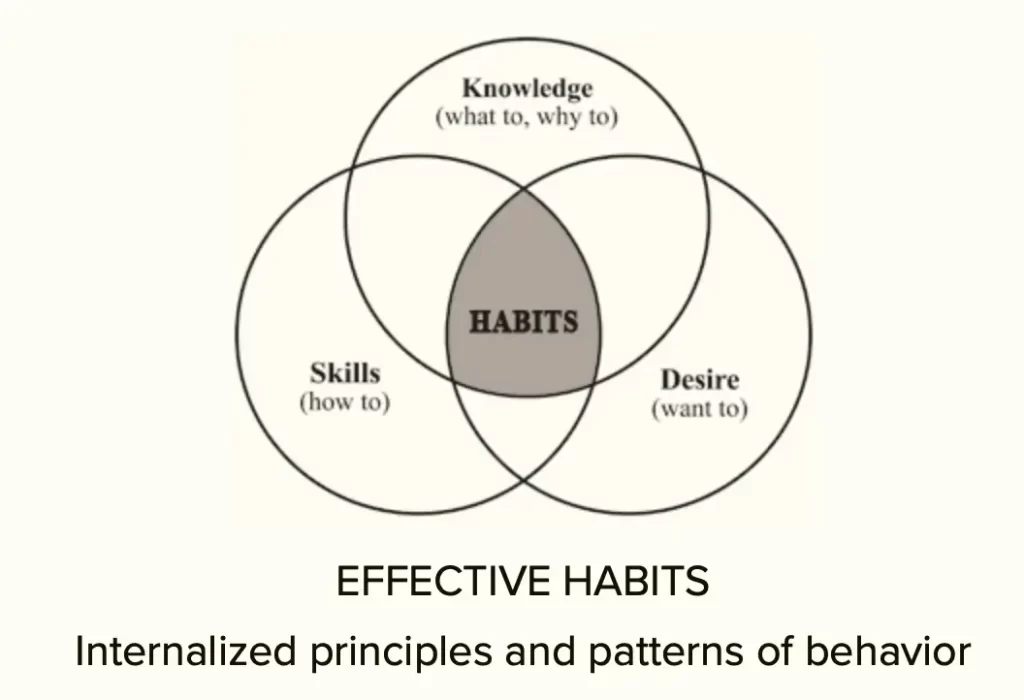
“Sow a thought, reap an action; sow an action, reap a habit; sow a habit, reap a character; sow a character, reap a destiny.”
- The Habit Sequence: Thought → Action → Habit → Character → Destiny
- Habits are the principles you choose (or don’t choose) to integrate into your life.
“For our purposes, we will define a habit as the intersection of knowledge, skill, and desire.”
The Three Stage of Maturity
“A tendency that’s run through your family for generations can stop with you. You’re a transition person—a link between the past and the future. And your own change can affect many, many lives downstream.”
- Dependence
- The you paradigm: “You take care of me.”
- Dependent people need others to get what they want.
- Emotional dependence: worth depends on others’ approval.
- Intellectual dependence: relies on others to think and decide.
- Independence
- The I paradigm: “I am responsible, I can choose.”
- Independent people rely on themselves—physically, mentally, emotionally.
- Independence is more mature than dependence.
- Allows people to act rather than be acted upon.
- Independent thinking alone is insufficient for success in relationships, families, and teams.
- Interdependence
- The we paradigm: “We can do it together.”
- Interdependence is a choice only independent people can make.
- It’s more mature and effective than independence.
- Recognizes the need for cooperation, teamwork, and mutual benefit.
- Reflects reality: life is inherently interdependent.
“No one can persuade another to change. Each of us guards a gate of change that can only be opened from the inside. We cannot open the gate of another, either by argument or by emotional appeal.”—Marilyn Ferguson
Effectiveness of Assets: The P/PC Balance
- Effectiveness: Maintaining the balance between results/production (P) and capacity to produce them (PC).
- Three Types of Assets
- Physical Assets: Overuse without care leads to expensive repairs or replacements.
- Financial Assets: Improving your own earning potential is key financial PC work.
- Human Assets: Most important asset category—people manage everything else. Relationships are the Golden Goose that produces trust, love, and cooperation.
“Ineffective people live day after day with unused potential.”
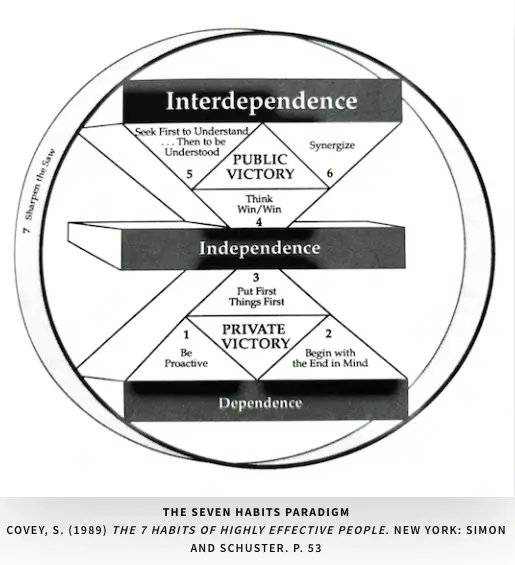
Private Victory: Habits 1–3 (Master Yourself)
Humility starts the transformation.
“Proactive people focus their efforts in the Circle of Influence. They work on the things they can do something about. The nature of their energy is positive, enlarging and magnifying, causing their Circle of Influence to increase.”
Habit 1: Be Proactive (You Are the Creator)
Core Idea: At it’s core, Habit 1 is the freedom to choose.
It Starts with Self-Awareness
- You have the unique power to observe your own thoughts and feelings and choose how to respond.
- It’s about taking personal responsibility for your life, and the freedom to choose your responses regardless of conditions.
- Happiness, like unhappiness, is a choice.
- It’s taking 100% responsibility for everything in your life—everything.
“We are not our feelings. We are not our moods. We are not even our thoughts. The very fact that we can think about these things separates us from them and from the animal world. Self-awareness enables us to stand apart and examine even the way we “see” ourselves—our self-paradigm, the most fundamental paradigm of effectiveness. It affects not only our attitudes and behaviors, but also how we see other people. It becomes our map of the basic nature of mankind.”
- Imagination: You have a magical power to visualize future possibilities beyond current reality.
Focus on Your “Circle of Influence”
- Focus and worry only about things in your control—things you can actually affect.
- Proactive people focus on their Circle of Influence, which expands over time, and they subordinating impulses to deeply-held values.
“It means that as human beings, we are responsible for our own lives. Our behavior is a function of our decisions, not our conditions. We can subordinate feelings to values. We have the initiative and the responsibility to make things happen.”
Reactive vs. Proactive Language
- Reactive: “I can’t,” “He makes me mad,” “I have to.”
- Proactive: “I choose,” “Let’s look at our options,” “I will.”
- Language reflects mindset—reactive people give away their power.
Habit 2: Begin with the End in Mind (The First Creation)
Core Idea: Visualize your desired outcome and create a personal mission statement focused on character, contributions, and guiding principles, and then be the leader of your life. Habit 2 focuses on the nature of the choices that you make once you are aware.
The Funeral Exercise
- Envision what you’d want family, friends, and community to say at your funeral.
- Imagine attending your own funeral, three years from now. Visualize the setting: flowers, music, family, friends. Picture four speakers representing:
- Family (spouse, children, extended relatives)
- Friends (someone who knew you personally)
- Work (a colleague or professional peer)
- Community (church or organization you served in)
- The Questions:
- What do you want them to say about your character?
- What kind of person, partner, parent, or friend were you?
- What achievements and contributions do you want remembered?
- What difference do you want to have made in their lives?
Personal Mission Statement
- Define who you want to be (character) and what you will do (contribution).
- Identify key roles in your life: parent, spouse, professional, friend, and define long-term goals for each role.
- Becomes your personal constitution—a guiding compass.
- Should reflect your deepest values and sense of purpose.
Four Principles of Your Circle of Influence and Mission Statement
- Security: intrinsic worth, based on correct principles.
- Guidance: clear inner direction—comes from a reliable moral compass.
- Wisdom: accurate map of reality—balances judgment and perspective.
- Power: ability to act on values, not conditions.
“The most effective way I know to begin with the end in mind is to develop a personal mission statement or philosophy or creed. It focuses on what you want to be (character) and to do (contributions and achievements) and on the values or principles upon which being and doing are based.”
Habit 3: Put First Things First
Core Idea: Prioritize and manage yourself based on your mission and values. Basically, run the program you just wrote for Habit 2. It’s the action based on your choices in Habit 2.
“’Live the program.’ And living it is primarily a function of our independent will, our self-discipline, our integrity, and commitment—not to short-term goals and schedules or to the impulse of the moment, but to the correct principles and our own deepest values, which give meaning and context to our goals, our schedules, and our lives.”
- Effective Management: Put what is most important first.
- Effective management arises from clarity about your values and mission, rather than simply time management.
- Leadership decides priorities; management executes them daily.
- Your discipline comes from within, not from external control.
- You have the integrity to align your actions with your values, even when it’s hard.
“The key is not to prioritize what’s on your schedule, but to schedule your priorities.”
The Four Quadrants
- Quadrant I: Urgent & Important
- Crises, pressing problems, deadline-driven tasks.
- Feels necessary, but can become overwhelming.
- People who live here are often constantly reacting.
- Quadrant II: Not Urgent but Important
- Planning, prevention, relationship-building, values-based activities.
- Where true effectiveness lives.
- Requires proactivity and intentional focus.
- Quadrant III: Urgent but Not Important
- Interruptions, some calls/emails/meetings, others’ agendas.
- Feels important, but driven by other people’s priorities.
- Quadrant IV: Not Urgent & Not Important
- Trivial, time-wasters, excessive relaxation or entertainment. Too much Netflix and mindless scrolling.
- Leads to irresponsibility and lack of direction.
“The challenge is not to manage time, but to manage ourselves.”
Quadrant II is Effectiveness
- Say “No”: It’s easier when you have a bigger “Yes” burning inside—your mission, values, and priorities.
- Every time we say “Yes” to what is not important we are also saying “No” to the thing that is important. Be intentional with your “Yes’s”.
- Live from your principles, mission, and roles—focusing on the important but not urgent.
“The way you spend your time is a result of the way you see your time and the way you really see your priorities. If your priorities grow out of a principle center and a personal mission, if they are deeply planted in your heart and in your mind, you will see Quadrant II as a natural, exciting place to invest your time.”
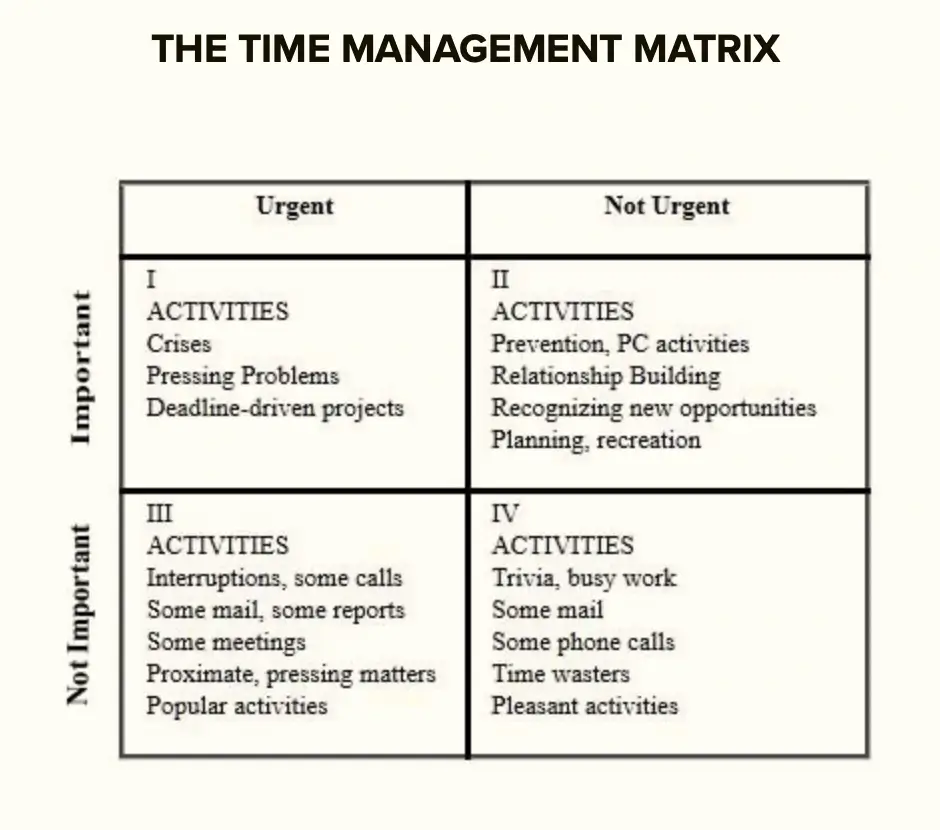
Public Victory: Habits 4–6 (Master Relationships)
“There can be no friendship without confidence, and no confidence without integrity.”
—Samuel Johnson
The Emotional Bank Account: Trust as a Reserve
- We must build our relationships on trust from more deposits than withdrawals:
- Deposits: kindness, honesty, keeping promises—all build trust.
- Withdrawals: disrespect, broken promises, betrayal—all deplete trust.
“To make a deposit, what is important to another person must be as important to you as the other person is to you.”
Six Major Deposits in the Emotional Bank Account
- Understand the Individual: Seek to truly understand the person before making deposits.
- Attend to the Little Things: Small acts of kindness and courtesy matter greatly.
- Keep Commitments: Always make promises carefully, and keep them consistently. A broken promise is a massive withdrawal.
- “Trust is the highest form of human motivation…When the trust account is high, communication is easy, instant, and effective.”
- Clarify Expectations: Expectations should be discussed openly in roles, goals, and responsibilities.
- Learn to give feedback using “I” messages like, “My concern is…” “My feeling was…“
- Show Personal Integrity: Integrity = aligning actions with values; keeping promises; loyalty to those not present. Talking behind someone’s back undermines trust with everyone. Integrity requires treating everyone with the same core principles.
- Apologize Sincerely: A genuine apology is a powerful deposit.
“Self-mastery and self-discipline are the foundation of good relationships with others.”
Habit 4: Think Win/Win
Core Idea: Cultivating mutual respect and benefits in all interactions.
Character (Foundation of Win/Win)
- No one wins unless everyone wins.
- Respect fuels mutual benefit.
- Requires integrity, maturity, and an abundance mentality.
- Integrity: Aligning actions with deep personal values; making and keeping meaningful commitments to oneself and others.
- Maturity: Balancing courage (to express one’s convictions) with consideration (for others’ perspectives and needs).
- Abundance Mentality: Belief that there’s enough success, recognition, and opportunity for everyone. Opposes zero-sum Scarcity Mentality.
- Consistency of Means and Ends: Win/Win outcomes require Win/Win methods.
Agreements (Clarify Expectations Up Front)
- Desired Results: Clear outcomes, not methods.
- Guidelines: Boundaries, principles, and policies.
- Resources: Available support systems.
- Accountability: Standards and evaluation timeline.
- Consequences: Natural/logical rewards or penalties tied to performance.
Four-Step Win/Win Process
- See the problem from the other’s perspective.
- Identify key concerns and issues (not rigid positions).
- Determine mutually acceptable results.
- Explore new options for achieving those results.
“Win/Win is a belief in the Third Alternative. It’s not your way or my way; it’s a better way, a higher way.”
Habit 5: Seek First to Understand, Then to Be Understood
Core Idea: Effective communication is rooted in empathy and deep understanding.
“Most people do not listen with the intent to understand; they listen with the intent to reply.”
- Understanding is the deepest deposit in the Emotional Bank Account.
- Listening deeply before seeking to be understood establishes trust and stronger connections.
- We all want so desperately to be understood.
- Good. You see it differently. Help me understand.
“I realize that you see something else. And I value you. I value your perception. I want to understand.”
Habit 6: Synergize (Creative Cooperation)
Core Idea: Creative cooperation, harnessing collective insights and strengths.
- Synergy: The whole is greater than the sum of its parts.
- Creative cooperation turns differences into breakthroughs.
- Recognizes individual uniqueness and leverages differences to achieve greater results.
- It is the essence of principle-centered leadership and parenting.
- It requires courage, openness, and inner security to explore unknown creative territory.
- Seeking third alternatives involves moving beyond binary thinking (either/or).
- Instead of pushing harder, synergy transforms resistance into cooperation.
- When practiced, it transforms interactions from transactional to transformational.
Synergy is not only the answer to human conflict; it is the principle that underlies the creation of every truly great relationship, team, organization, and civilization.”
Habit 7: Sharpen the Saw (Renew Habits 1-6)
“Sharpen the Saw means preserving and enhancing the greatest asset you have—you.”
Core Idea: Continuous renewal in four areas of life to sustain long-term effectiveness.
The Four Dimensions of Renewal
- Physical (Body)
- Involves: Exercise, nutrition, rest, and stress management.
- Run, Lift, and Stretch
- Consistent physical care improves energy, resilience, and self-discipline.
- Spiritual (Soul)
- Involves: Clarifying values, meditation, prayer, nature, meaningful literature.
- Provides: Direction, purpose, personal peace, and inspiration.
- Mental (Mind)
- Involves: Reading, writing, planning, visualizing, critical thinking.
- Avoid passive consumption (e.g., TV); prioritize self-education.
- Social/Emotional (Relationships)
- Involves: Empathy, service, synergy, and intrinsic security.
- Emotional life is built through interactions and relationships—comes from integrity and principle-centered living.
The Upward Spiral of Continuous Growth
- Learning
- Committing
- Doing
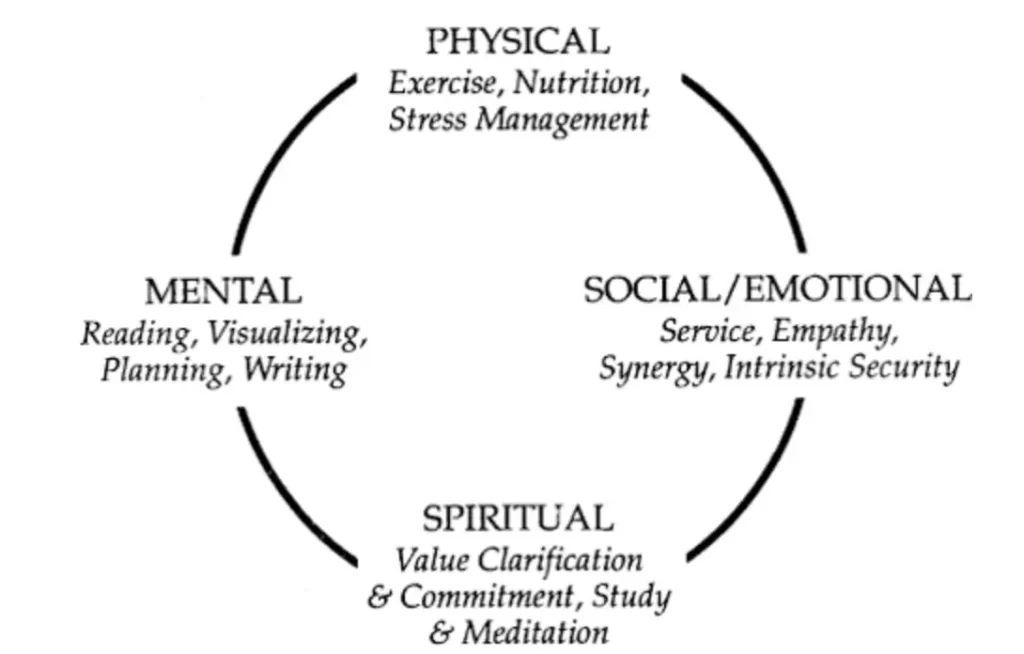
“How different our lives are when we really know what is deeply important to us, and, keeping that picture in mind, we manage ourselves each day to be and to do what really matters most.”
Actionable Takeaways
(Practical lessons and actionable steps you can apply from The 7 Habits of Highly Effective People Summary.)
- Decide Your Values
- Reflection: List out some of your most important Values you want in life.
- Action: Create a “Values List.”
- Take Responsibility for Your Life
- Reflection: Think about things you complain about.
- Action: Identify one recurring complaint and rewrite it as a proactive statement.
- Replace every “have to” with “choose to” for 24 hours.
- Take Control of Your Life and Plan
- Reflection: What are your Quadrant II priorities? What is preventing you from doing them?
- Action: Plan your next week, not just one day, and fill at least 50% of your schedule with Quadrant II activities.
- Sunday (or a day of rest/reflection) is ideal for weekly planning.
- Fix Your Weakest Habit
- Reflection: Choose one habit that feels weakest right now.
- Action: Write a 7‑day micro‑commitment to practice it.
- Review nightly.
- At week’s end, celebrate the private victory—and begin the next.
- Focus On Your Circle of Influence
- Reflection: Think about and list everything that is in your control in your life and how you can stretch your Circle of Influence.
- Action: Make and keep one small commitment each day for 30 days that is 100% in your control.
- Define your Roles
- Action: List out all the roles you play in life and one way you can improve in each role.
- Take one action to improve each role this week.
- Action: List out all the roles you play in life and one way you can improve in each role.
- Create a Mission Statement
- Action: Create a personal mission statement so that you can constantly refer to it. There needs to be a place for your roles regarding both your short and long-term goals included in your mission statement.
My Contrarian Takes
(My critical perspective on The 7 Habits of Highly Effective People Summary key lessons.)
What the Book Gets Right
First, it was published in 1989, so, in my eyes, it was ahead of its time because more so than ever, we are in need of a principle-centered life. But, The 7 Habits of Highly Effective People isn’t perfect and it could have been simplified in a lot of places.
What If…?
- The idea of beginning with the end in mind is misunderstood by many people?
- Many people think it means to imagine a future and set goals, but it really means to start with principles and define your character, first.
- Some of the book was unnecessarily complex and confusing at times?
- I don’t have many complaints about this book, but if I did, I’d say that some of it was over-explained and unnecessary.
- For example, the first 50 pages of the book could have been condensed to 10 pages.
- Also, terminology like “paradigms” and “synergy” weren’t really helpful. But again, it was published in 1989, so maybe those terms were hip back then. What do I know?
- The book was trying to do too much?
- At times, Covey goes on about how each habit applies to family life, or in organizations, or in schools, or with parenting, or relationships…you get the point. The book tried to cover a lot of ground and that could make it feel disjointed at times.
Final Questions for You to Ponder
- How can I be more proactive in my life?
- What character traits do I really want to be know for?
My Final Take
It’s worth reading for sure. Just skim through the unnecessary parts and focus on the essential sections (which are all in The 7 Habits of Highly Effective People Book Summary).
Buy the Book

Books to Read Together
- Deeper Exploration:
- Alternative Perspectives:
Other Books by Stephen Covey
- The 8th Habit: From Effectiveness to Greatness: Print | Ebook | Audiobook
- First Things First: Print | Ebook | Audiobook
More Book Summaries
If You Liked This 7 Habits of Highly Effective People Summary Then…
Weekly Book Summaries and Insights
From Some of the Best Books Ever Written
You’re not here to live a life you’ll regret. Neither am I.
Get weekly insights, in-depth book summaries, and must-read lessons from remarkable books— with actionable advice and practical takeaways—so you can live a life you won’t regret.
No spam. Ever. Bad jokes. Often. Opt out anytime.
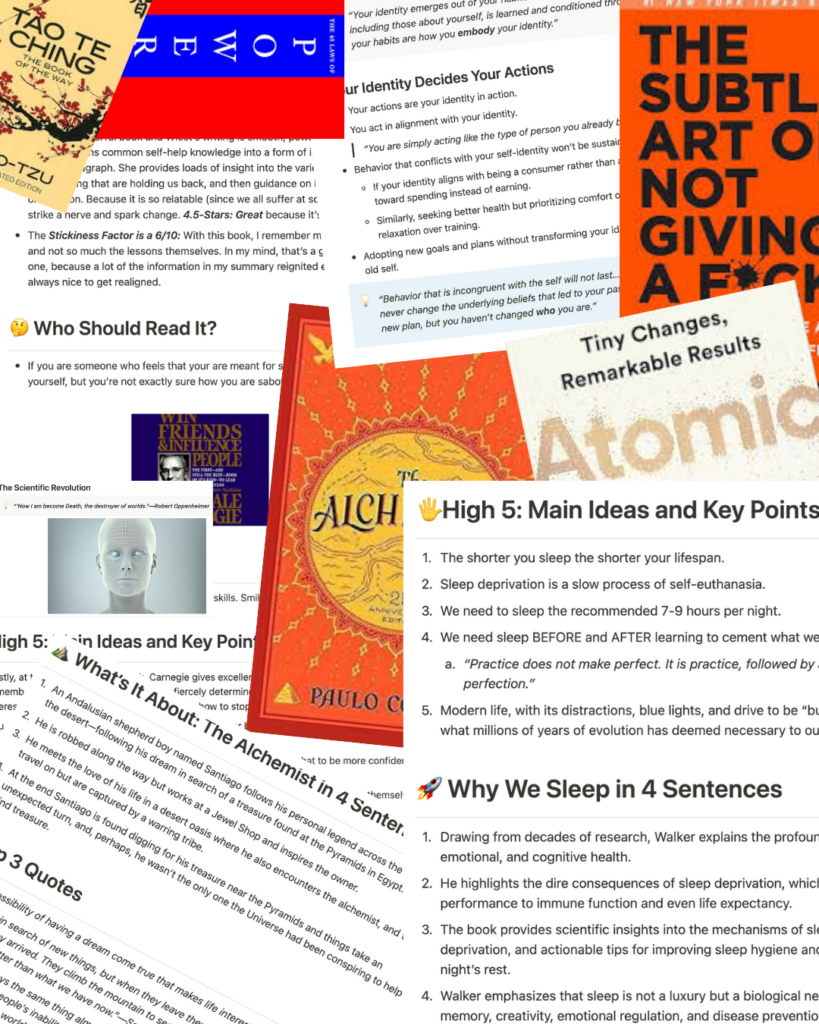
30 Days of Audible…Free
My Book-Rating Scale
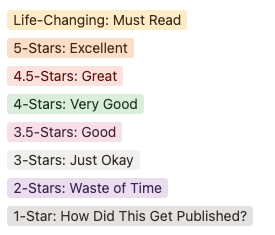
Now, we are on the same page.
*If you use the affiliate links in here a magic genie will suddenly appear in front of me granting me unlimited wishes, at which point I will then immediately wish for something like 100 billion dollars, a submarine, a funny hat, or something cool like that. So just assume that if you use the links to buy anything I make tons of money and become filthy rich. Besides this last statement, I practice radical honesty, and anything I ever recommend is something I stand by.






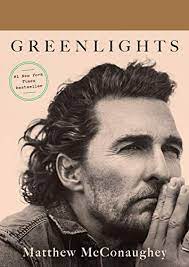
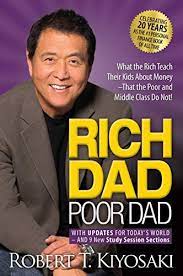
Thanks so much! This made my day start with a great mindset!
Hey! My first website comment! How exciting! :)))